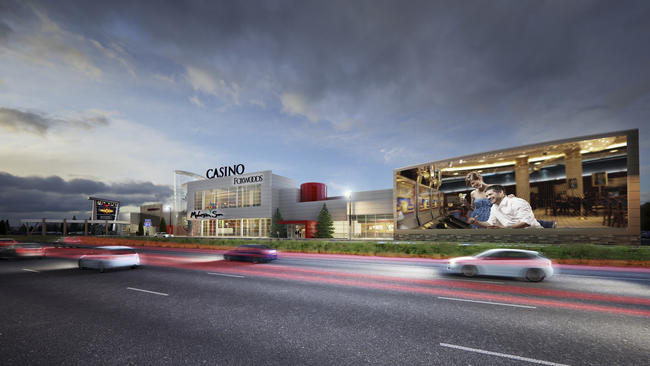MGM Resorts International is never shy about trying to protect their turf, even when it means marshaling a powerful force of litigators, lobbying lawmakers, or supporting anti-casino efforts once they have their own foundations laid. They aren’t alone. Whenever millions or billions of dollars are on the line the players, big and small, seem to do everything within their powers to protect their interests.
Millions are usually invested, or gambled, to secure a lucrative market before ground is even broken, but sometimes a threat can rise just across a state’s border with an entirely different set of laws and regulations. From one perspective, that’s what occurred when the Connecticut tribes that run Mohegan Sun and Foxwoods decided to open a casino together as MMCT Venture. From another perspective, they are simply trying to keep Connecticut gamblers from traveling to Massachusetts to play at MGM Springfield, a $950 million casino resort less than 10 minutes away from the states’ common border.
22News (WWLP) reported on November 22, that MGM’s lawyers were headed to the United States Court of Appeals for the 2nd Circuit in New York City Monday in an effort to stop the Mashantucket Pequot and the Mohegan Tribes of Connecticut from building a new casino. One potential location for the casino, which doesn’t even have a law authorizing it yet, is East Windsor, less than 15 miles from MGM Springfield.
Other sites under consideration by the tribes include East Hartford, Windsor Locks, South Windsor, and Hartford – all in close proximity to the mega-resort expected to open in 2018.
The MGM Springfield location could turn out to be a big gamble on both sides of the border. Although some analysts have suggested that both casinos could survive so close together, other respected consultants have proferred (see comments) that the tribes would do just as well or better to place a new casino in affluent Westchester County, closer to New York populations.
The tribes may well have reason to worry about losing customers to MGM Springfield. Although some studies funded by stakeholders can conveniently leave out some mitigating data in reaching their conclusions, they can also paint a picture of potentials.
MMCT commissioned casino consultant and political scientist, Clyde Barrow to conduct a study on the impact of MGM’s casino opening. The conclusions were detailed and showed a potential impact on Connecticut of 9,300 jobs lost and more than $100 million in tax revenue evaporating along with $700 million in gross gaming revenue being lost by the tribes. The Connecticut Office of Fiscal Analysis has estimated nearly $70 million in lost tax revenues for 2019.
Connecticut legislators return to work in January, by that time MMCT Venture is expected to have announced a location for their new casino. Depending on the results of Monday’s hearing the race may be on to see who shall open their doors first, or it may be back to the drawing board for the tribes.


